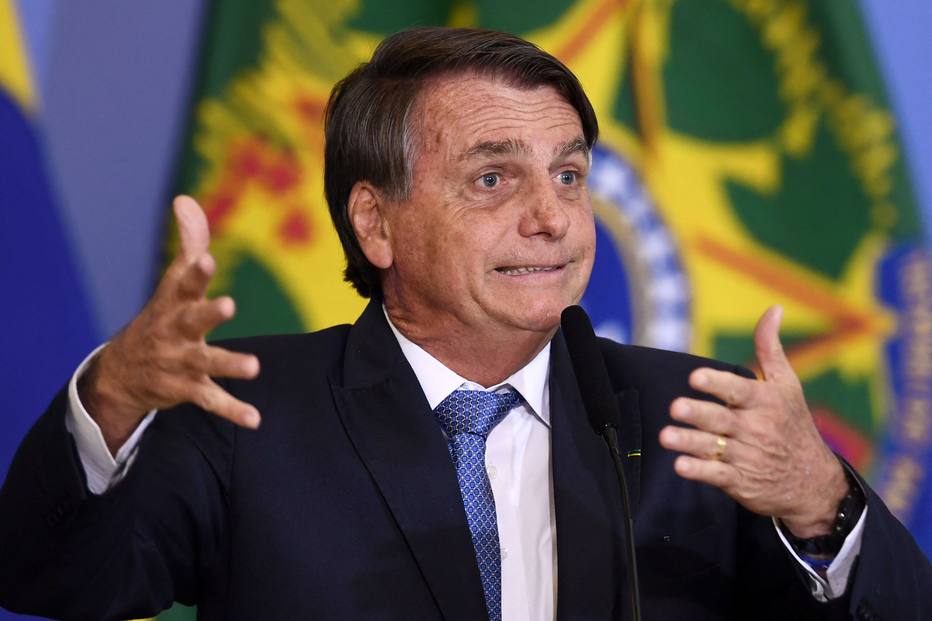Bolsonaro sends a project to end mandatory pre-salt funds for education and health
4 min read
BRASILIA – With four months to go before the elections, President Jair Bolsonaro Sent to Congress a bill to sell its stake in petroleum extracted from the excavation areas in salt through partnership agreements. The government estimates this group at R$398 billion (updated values), according to the explanatory note sent along with the Parliamentarians Support Project.
Today, these contracts are traded with Petroleo SA (PPSA) pre-saltIt is a state-owned company that the federal government wants to privatize. a The Ministry of Economy The project was used to exempt the government from allocating oil sales proceeds that go to The social fund before the saltfor expenditures in the areas of education (75%) and health (25%).
Deregulation is controversial because resource allocation will take place in the budget process, and these areas may end up not receiving the same amount they would have with the allocated revenue.
The fund was created in 2010, during the government of former President Lula, with the justification that the money by the salt, the great wealth of Brazilians, will not be lost and will be used to finance investment in education, above all. of future generations. The idea at the time was that resources wouldn’t evaporate into machine costs, which were a lower priority.
Now, in its justification for the deregulation, the government says there will be no “damage” to the regions. According to the General Secretariat of the Presidency of the Republic, the link will lead to inefficiency in financial management, given the amount of expected resources.
liquefaction
An attempt to move forward with the sale of PPSA contracts is taking place at a time when the price of a barrel has reached its highest value in the last 10 years and there is a strong demand for this product in the market. Practically speaking, if the project is approved and the crude oil is sold, the government will end up anticipating future revenues.
For the government, this is an opportunity to invest in oil before the energy transition from fossil to renewable sources is complete. The COVID-19 pandemic, and then the war in Russia, delayed this process.
“We are 70 years behind. Fortunately, there is still plenty of time to secure investments and take advantage of this latest stretch of fossil energy. Now or never” stadium Private Secretary for Privatization, Divestment and Markets at the Ministry of Economy, Diogo McCord.
In his view, the sale of contracts is a powerful message from Brazil to divest in dirty sources to focus efforts on what the country already considers a world leader, renewable energy generation. “It is a decision by the government to get rid of oil to focus on other areas,” the minister said.
He explained that if the project is approved, the sale will be through the oil fields. Private partners exploring these areas must agree to the sale. According to the minister, with the sale, the government removes three uncontrollable risks: the volume of oil actually removed (contracts today are based on estimates), the dollar exchange rate and the value of a barrel.
This action is part of the liberal agenda of the Economy Minister, Paulo Guedes, who has not gone through government, but has ended up accelerating now with the departure of economist Adolfo Sachida to lead Ministry of Mines and Energy In the midst of the crisis, high fuel prices. Sashida was Guedes’ secretary and was supporting the sale of PPSA and Petrobras.
The next step should be to include Petrobras by decree in the PPI portfolio with a view to its privatization. As Estadão explained, the government will also send a project to open Transpetro, a Petrobras subsidiary in the transportation sector, to competition to lower fuel prices. Despite this movement, there are doubts about the progress of this agenda in an election year.
According to the PPSA, there are 19 contracts in force in the country on a participatory basis, including those recently signed for the Sépia and Atapu groups. With the sale, the PPSA will no longer be part of the existing contracts, causing business decisions to be made by entirely private entities.
Next, the area of the Ministry of Economy responsible for the Social Fund and the Ministry of Mines and Energy does not want to give details about the cash funds of the Social Fund or comment on the deregulation of resources.
in an article in stadiumCounsellor Adriano Pires, who was appointed to head Petrobras and later ended up not taking the position, wrote that the amounts raised could foster a real revolution in Brazilian public finances and that PPSA expects to generate revenue of $116 billion, between 2022 and 2031, with Marketing of oil from partnership contracts.
According to his calculations, the union’s share of oil will jump from 24 thousand barrels / day, in 2022, to about one million barrels / day, in 2031. It was expected that by 2031, the participation contracts would generate $92 billion in 2031. Royalties and $77 billion in corporate income tax and Social Contribution to Net Income (CSLL). Added to this money to the revenue forecast from Etihad Oil Marketing, the estimated revenue for the public treasury was $285 billion in ten years.

“Entrepreneur. Music enthusiast. Lifelong communicator. General coffee aficionado. Internet scholar.”







